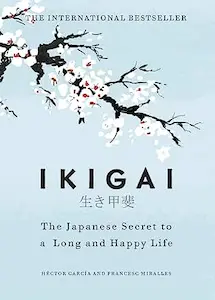Ikigai - Summary
Francesc Miralles and Hector Garcia

Introduction
“Ikigai” is a book written by Francesc Miralles and Hector Garcia, which explores the Japanese concept of ikigai, meaning “a reason for being.” The book delves into the secrets of living a long and happy life by finding one’s purpose and passion. The authors have interviewed several centenarians from Okinawa, Japan, who have shared their wisdom and insights on how to live a fulfilling life. In this book summary, we will explore the key takeaways from the book and how they can be applied to our lives.
What is Ikigai?
Ikigai is a Japanese concept that translates to “a reason for being.” It is the intersection of four elements: what you love, what you are good at, what the world needs, and what you can be paid for. According to the authors, finding your ikigai is the key to a long and happy life.
The Ten Rules of Ikigai
The book outlines ten rules of ikigai that can help us find our purpose and passion in life. These rules are based on the insights shared by the centenarians from Okinawa. Here are the ten rules of ikigai:
- Stay active and don’t retire
- Take it slow and don’t rush
- Don’t fill your stomach
- Surround yourself with good friends
- Get in shape for your next birthday
- Smile and acknowledge people around you
- Reconnect with nature
- Give thanks to your ancestors and those before you
- Live in the moment
- Follow your ikigai
Examples and Anecdotes from the Book
The authors have shared several examples and anecdotes from the centenarians they interviewed, which provide valuable insights into the concept of ikigai. Here are some of the examples:
- One of the centenarians, a 102-year-old woman, still works in her family’s business, making mochi (rice cakes). She says that working keeps her active and gives her a sense of purpose.
- Another centenarian, a 100-year-old man, spends his days tending to his vegetable garden. He says that being in nature and growing his own food gives him a sense of satisfaction and purpose.
- The authors also share the story of a 98-year-old woman who still teaches traditional Okinawan dance. She says that teaching brings her joy and helps her stay connected to her culture.
How to Find Your Ikigai
The book provides several exercises and questions that can help us find our ikigai. Here are some of the questions:
- What do you love doing?
- What are you good at?
- What does the world need?
- What can you be paid for?
- What are you passionate about?
- What are your values?
- What are your strengths and weaknesses?
By answering these questions, we can identify our passions, strengths, and values, which can help us find our ikigai.
Applying Ikigai to Our Lives
Finding our ikigai can help us live a more fulfilling life. By doing what we love and what we are good at, we can find a sense of purpose and satisfaction. Here are some ways we can apply the concept of ikigai to our lives:
- Identify our passions and strengths
- Set goals that align with our ikigai
- Surround ourselves with positive and supportive people
- Practice gratitude and mindfulness
- Stay active and take care of our health
- Find ways to give back to our community
Conclusion
“Ikigai” is a book that provides valuable insights into the Japanese concept of finding one’s purpose and passion in life. By interviewing centenarians from Okinawa, the authors have shared the secrets of living a long and happy life. Finding our ikigai can help us live a more fulfilling life by doing what we love and what we are good at. By applying the principles of ikigai to our lives, we can find a sense of purpose and satisfaction.